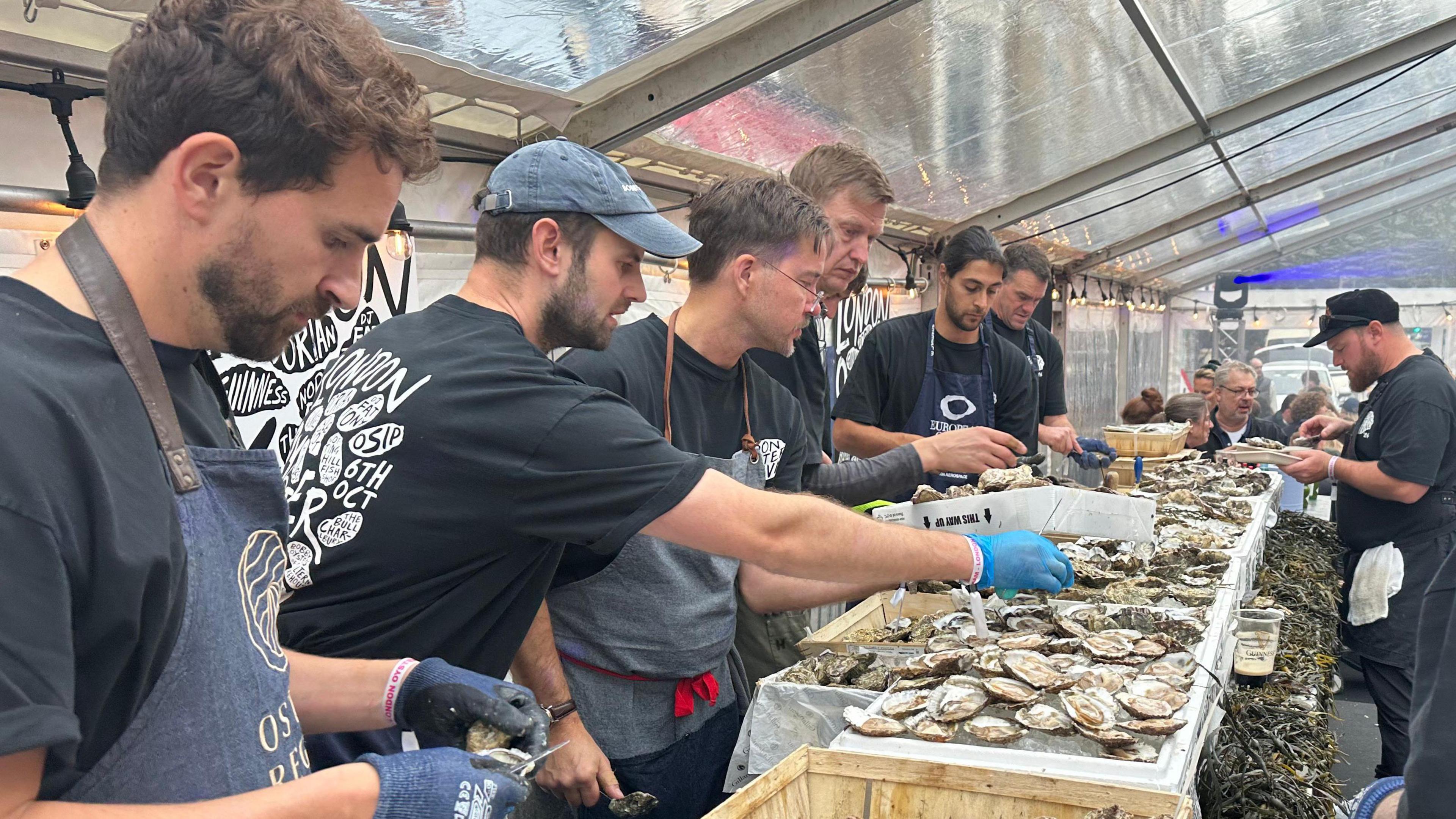Residents take action over anti-terror barriers
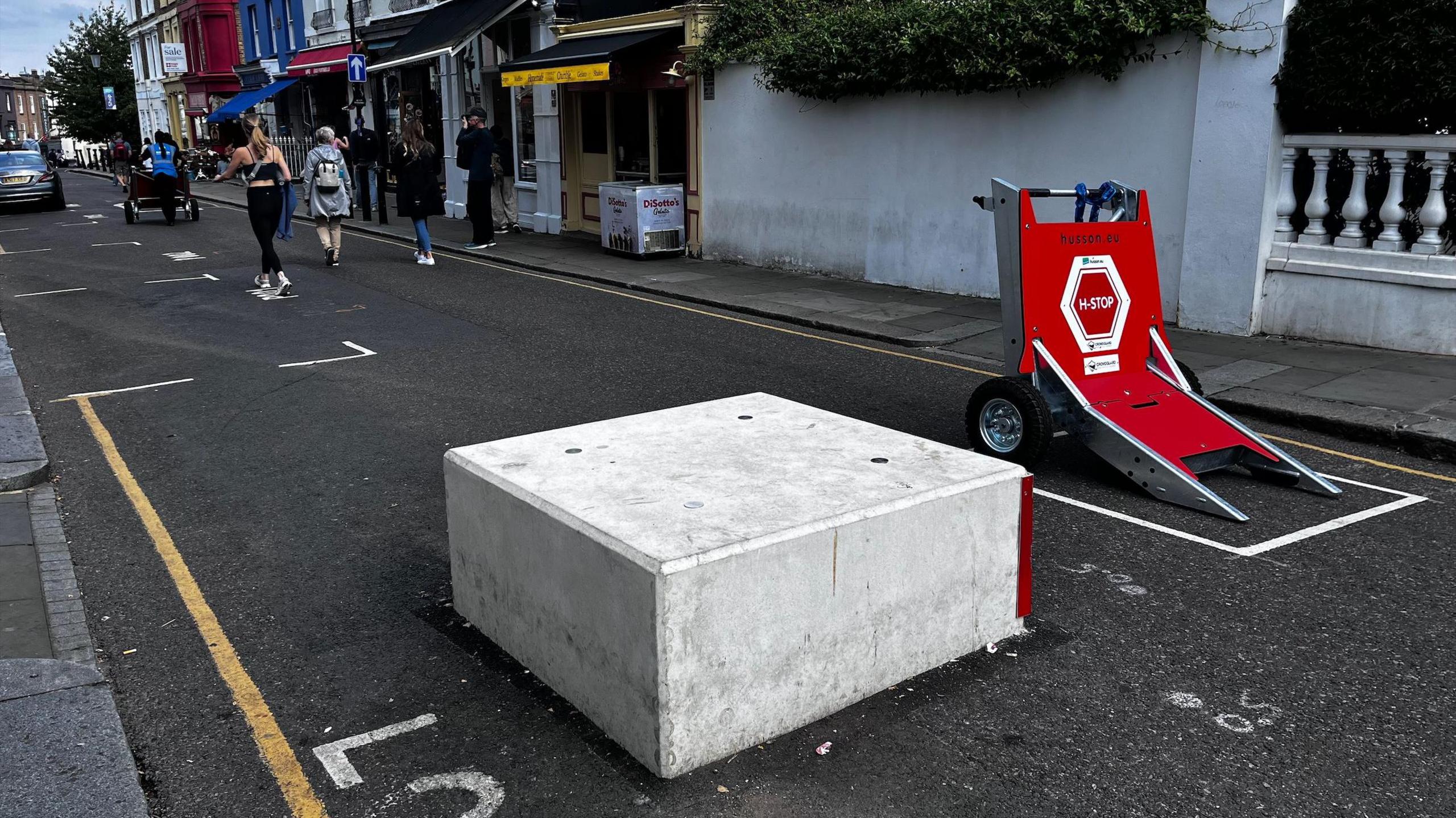
The concrete barriers were introduced after counter-terrorism guidance from the Metropolitan Police
- Published
Residents living on Notting Hill's famous Portobello Road are taking legal action over a number of concrete barriers which have been installed on the street.
Last month, Kensington and Chelsea Council placed the barriers on the west London road, following counter-terrorism guidance issued by the Metropolitan Police.
However, residents and market traders argue that they were introduced without formal consultation and have left them feeling imprisoned.
The council said the temporary order was introduced to protect people and it would consult with residents over a permanent solution.
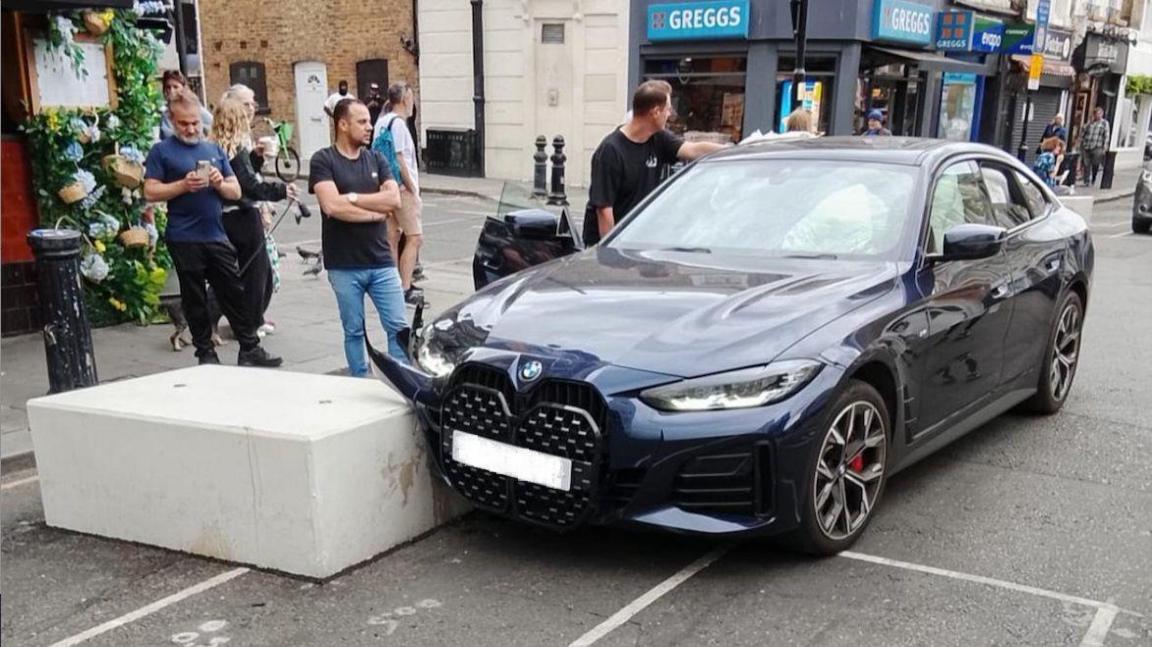
Residents said crashes had become a daily occurrence since the barriers were introduced
Law firm Broadfield, which represents the residents, claims the new barriers were introduced without formal consultation.
Their lawyers have sent a letter on behalf of residents to the council, expressing their intention to challenge the Anti-Terrorism Traffic Regulation Order.
As well as the barriers, vehicles have also been banned from using the road between 10:00 BST and 16:00 for either three or seven days a week, depending on the section of the street.
Locals say the measures, which were introduced over fears of vehicles being driven into pedestrians, means emergency services, delivery trucks and taxi cabs are unable to reach them.
Further concerns have been expressed by blue badge holders, who said they were unable to access the street via car.
The council said it had worked with emergency services to ensure their vehicles can get through, after paramedics were forced to park beyond the barriers and carry kit to attend to a child with breathing difficulties.
It said it had also created new blue badge bays and drop-off areas in side streets.
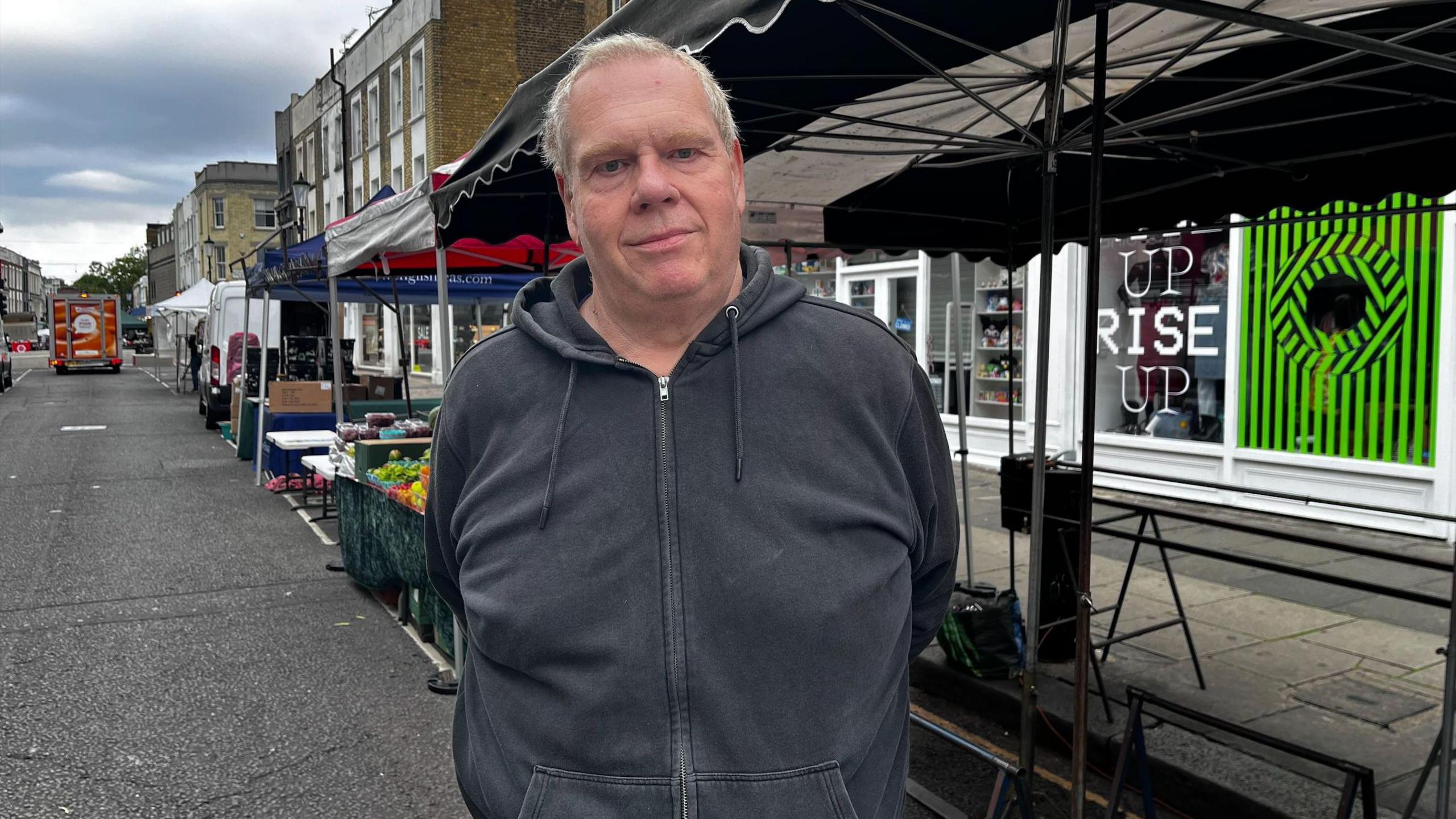
Market trader Mark Barr feels the barriers "cause as many problems as they cure"
Portobello Road claims to host "one of the most famous and historical street markets in the world", which began in the 19th Century and is particularly known for its antiques.
It rose to fame after being featured in the 1999 film Notting Hill, starring Hugh Grant and Julia Roberts.
Market traders say they understand the reasons for the barriers, but that they had been badly implemented.
Mark Barr, a stall holder at the market, said: "They're too low, they're not signed enough, and they cause as many problems as they cure."
He said there has been "two or three crashes a day", and that residents had to persuade the council to fit reflective signs on the barriers, so they would be visible at night.
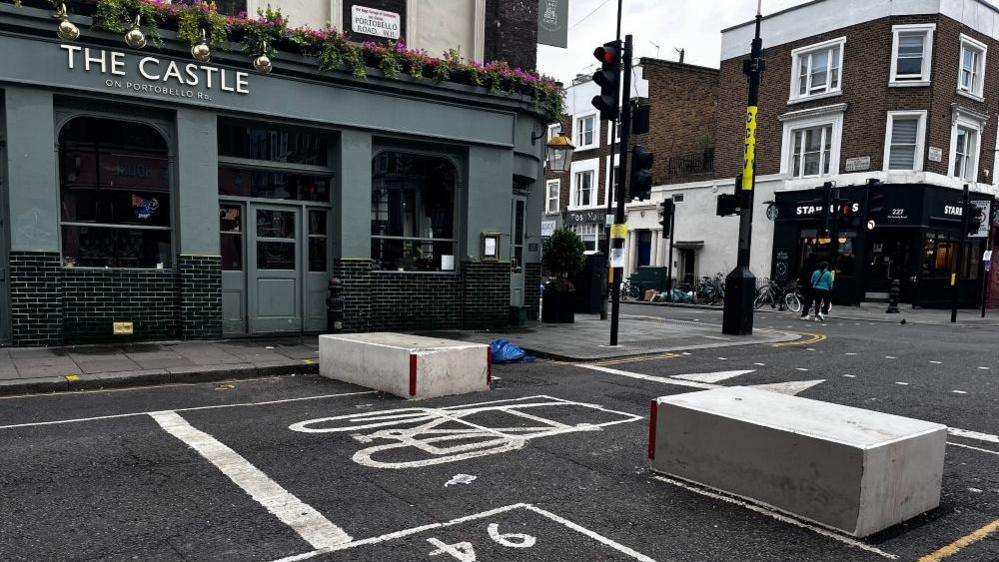
The measures are intended to be temporary, with the council consulting on a permanent scheme
Fellow trader Jane Bridgman expressed sympathy for the council, but still felt there had been issues over the lack of a full consultation.
"Obviously we want safety from hostile vehicles, but traders are having to witness cars getting scrunched up metres away from where they work."
She also said there had been an increase in anti-social behaviour, including street drinking and drug use, since the barriers were erected.
Ms Bridgman added traders had been advised there would be a "better, stronger alternative", but that this "is not going to happen immediately" and "we've got to be a bit patient".
However, she said that "the new system is what most traders are hanging their hopes on, and we should have that sooner rather than later".
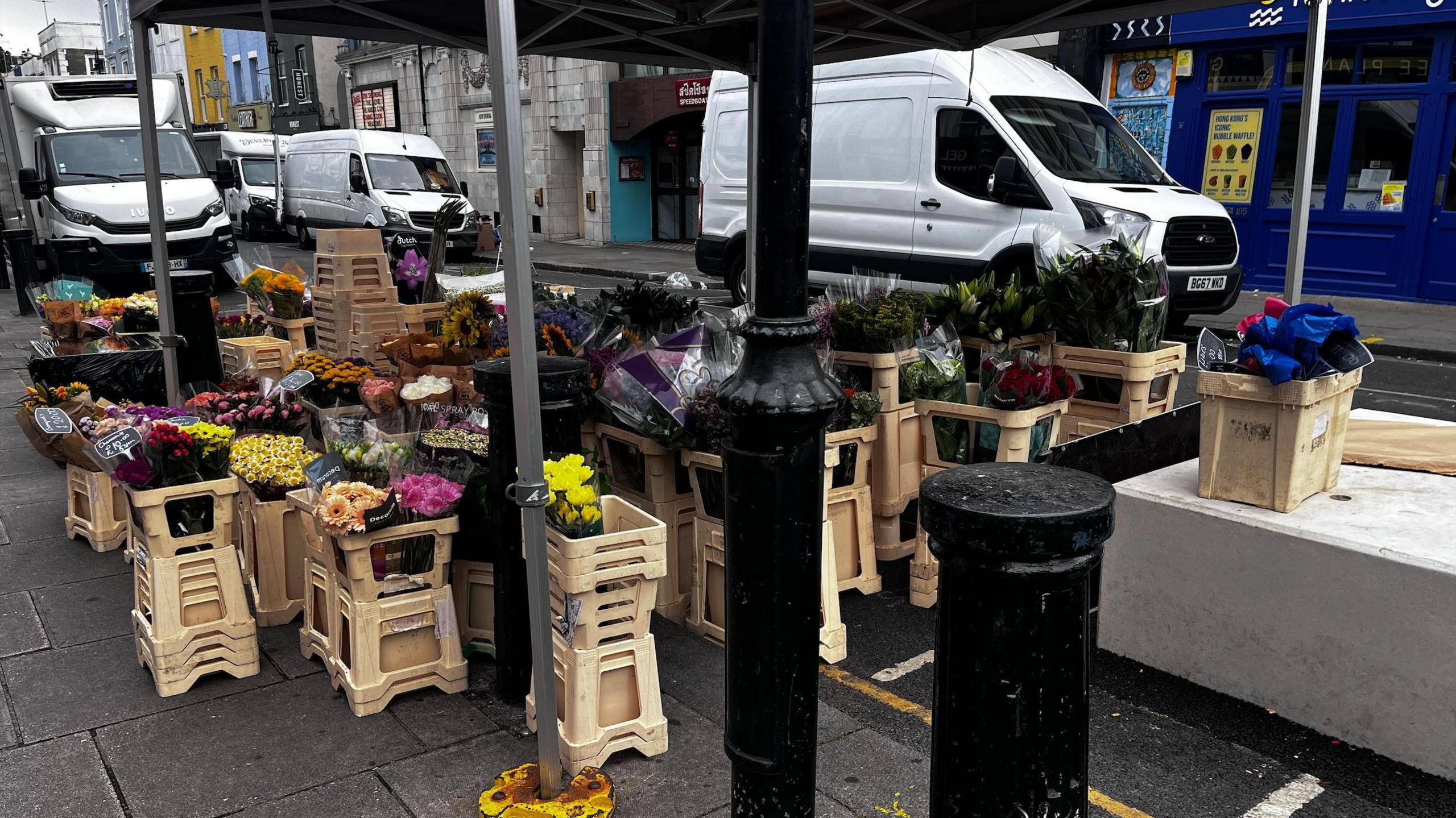
Portobello Road is famous for its market, which was featured in the 1999 film Notting Hill
A spokesperson for Kensington and Chelsea Council said the temporary order was introduced to protect from vehicle attacks during busy periods.
They said: "Our priority remains the safety and wellbeing of everyone in the community.
"We believe the current measures strike a reasonable balance between protecting the public and supporting the needs of individuals."
The council pledged to address concerns expressed by residents and businesses in its proposals for a permanent scheme.
Listen to the best of BBC Radio London on Sounds and follow BBC London on Facebook, external, X, external and Instagram, external. Send your story ideas to hello.bbclondon@bbc.co.uk, external
- Published10 November 2024
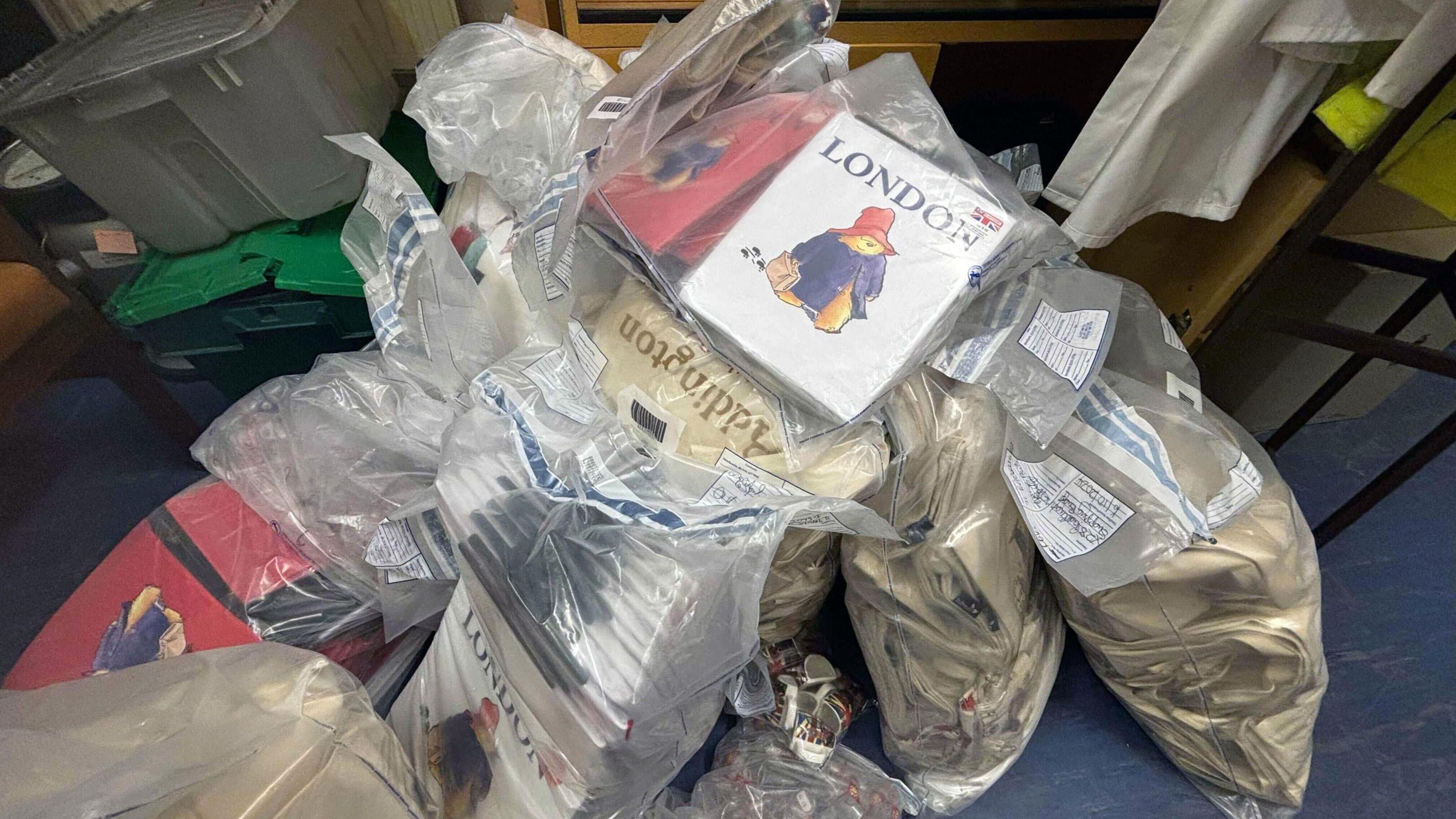
- Published20 May
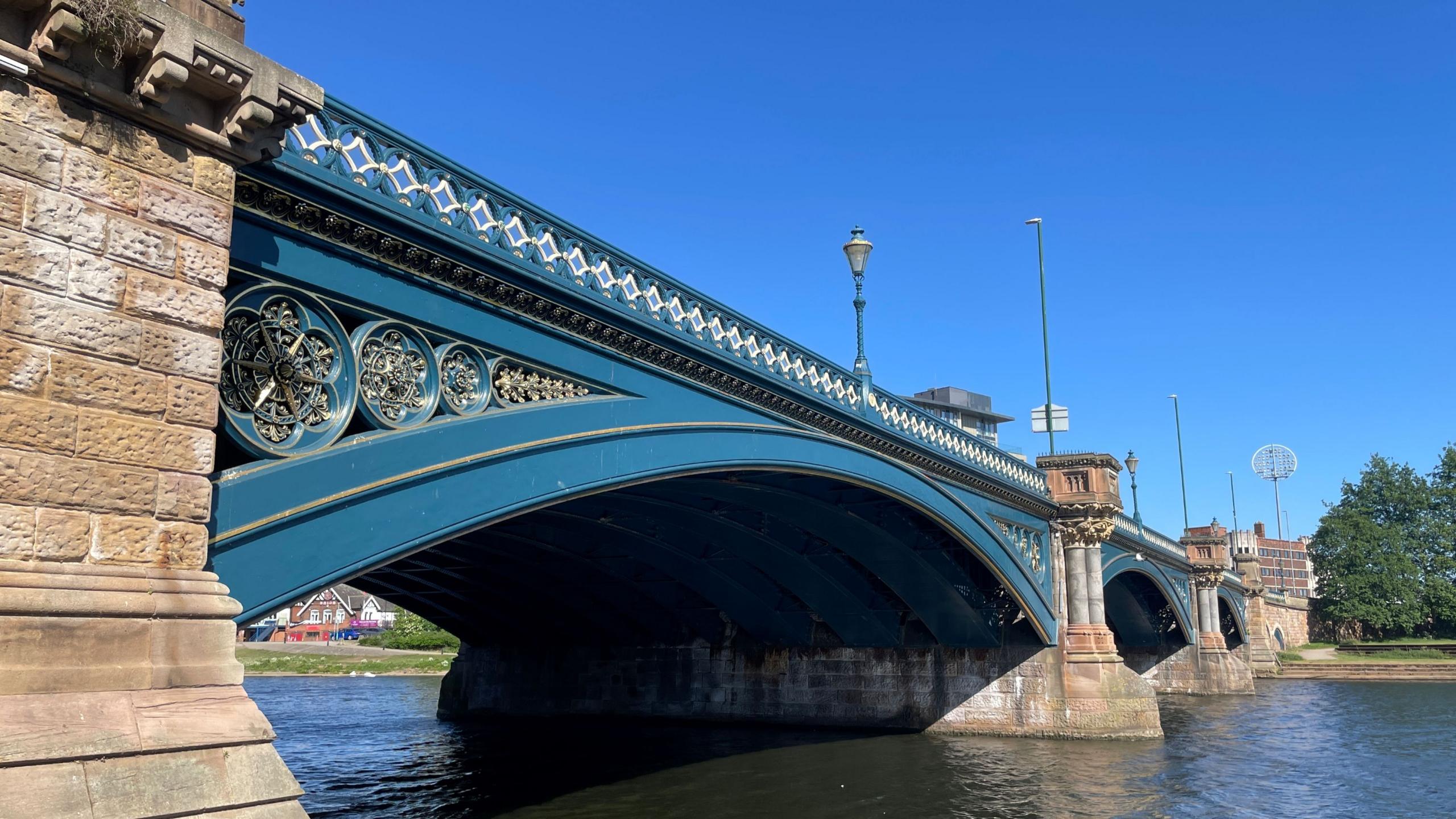
- Published6 October 2024
